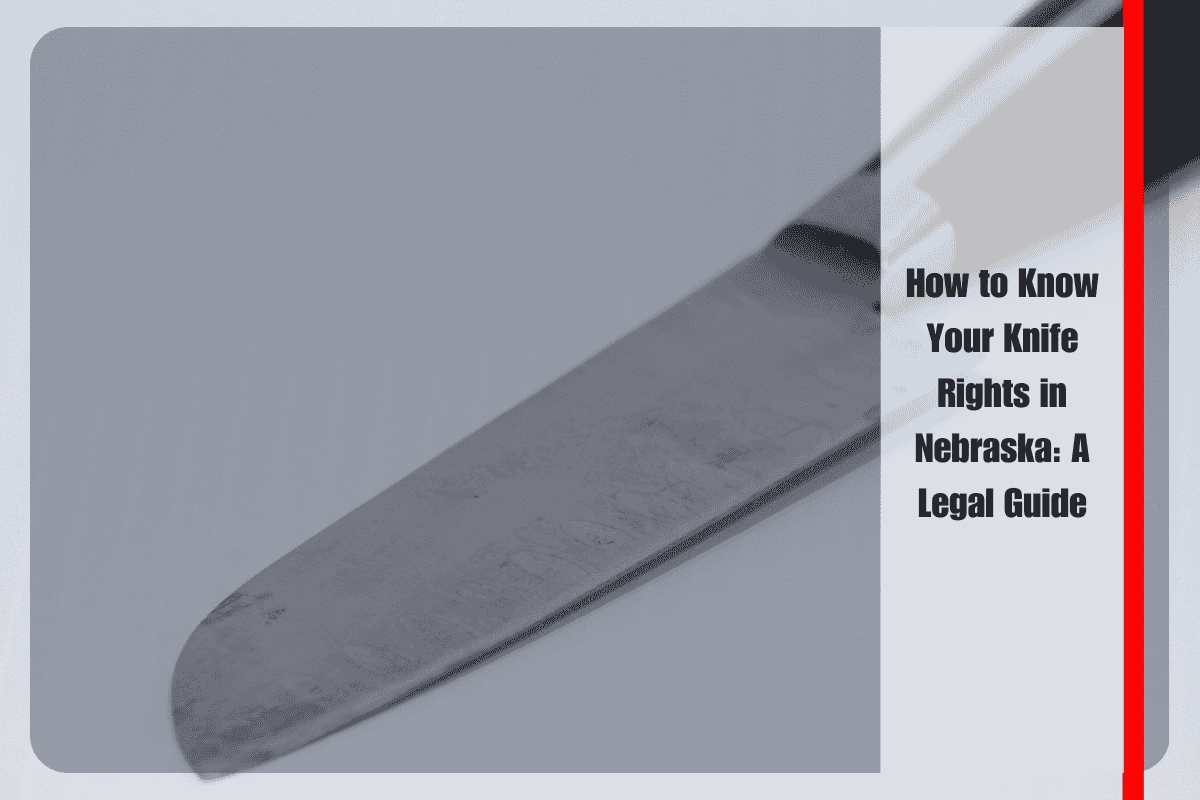Nebraska’s knife laws are a mix of state statutes and local ordinances, making it important for residents and visitors to understand the rules clearly to avoid legal trouble. As of recent years, Nebraska generally allows individuals to own and carry a wide variety of knives, including folding knives, fixed blades, daggers, stilettos, and even automatic or switchblade knives. However, there are specific limitations especially concerning blade length and the manner in which knives are carried.
One of the main legal thresholds in Nebraska is the blade length of the knife. State law defines a knife as a “deadly weapon” if its blade is longer than 3.5 inches and it is used or intended to be used in a way that can cause serious injury or death. Consequently, knives with blades over 3.5 inches cannot be carried concealed unless you are on your own property or have a valid permit allowing concealed carry of weapons. Concealed carry refers to carrying the knife hidden from ordinary observation, and the state uses an “ordinary observation” standard to determine concealment. Knives with blades up to 3.5 inches can be concealed without a permit.
Open carry of knives is generally permitted in Nebraska, except for ballistic knives which are banned statewide. Open carry means carrying the knife visibly. Nevertheless, even with open carry, exercising caution is advised, especially in public places with crowds or at government buildings, as local ordinances may impose additional restrictions. Nebraska does not have statewide preemption for knife laws, meaning some cities like Lincoln and Omaha have their own ordinances that may restrict possession, sale, or carrying in particular zones or under certain conditions.
Some locations such as schools have specific prohibitions against carrying knives with blades over a small length—usually very limited to pocket knives of 2.5 inches or less—and violating these rules on school grounds may result in disciplinary action or legal penalties.
Nebraska laws also prohibit certain categories of people from owning knives, including convicted felons, fugitives, and individuals subject to specific protective orders, aligning knife ownership with broader public safety concerns.
The state criminal code treats violations—for example, unlawfully concealing a knife with a blade over 3.5 inches—as misdemeanors punishable by confinement and/or fines. Since local governments can enact their own regulations, it is crucial to check specific municipal codes, especially in larger cities.
To summarize, Nebraska permits ownership and open carry of most knives but restricts concealed carry of knives with blades longer than 3.5 inches without a permit. Ballistic knives remain illegal. Local laws may add further limitations, especially in places like schools or municipal properties. Staying informed about blade lengths, carry methods, and location-based restrictions is essential for legal knife possession and use in Nebraska.
This legal framework seeks to balance individual rights with public safety concerns while providing clear guidelines on what knives are allowed and how they may be carried under state and local laws.












